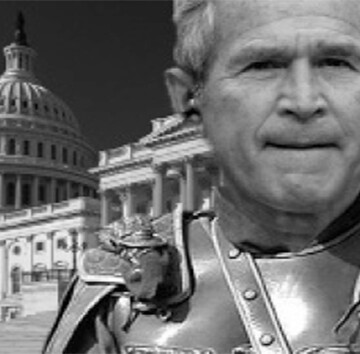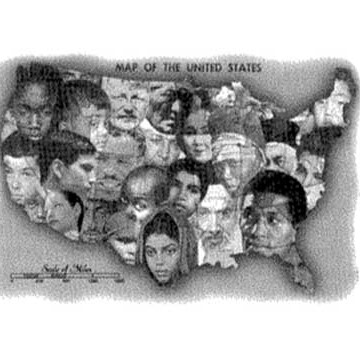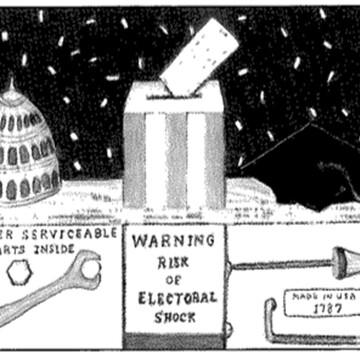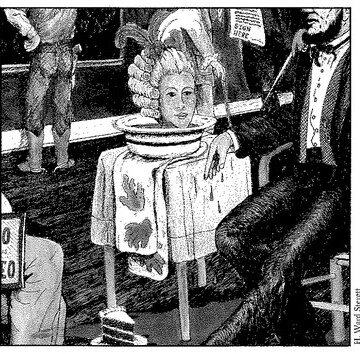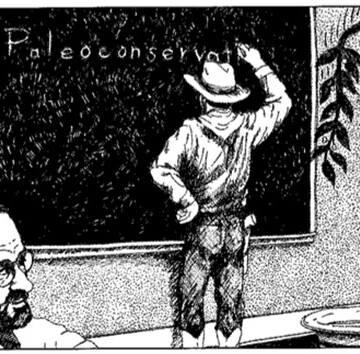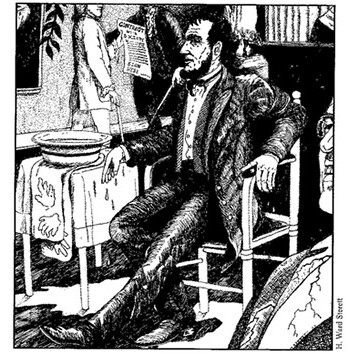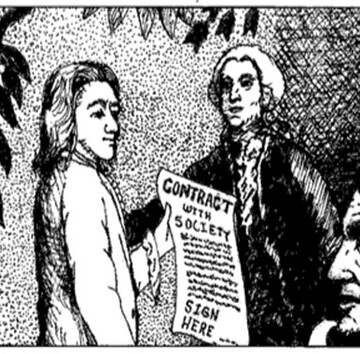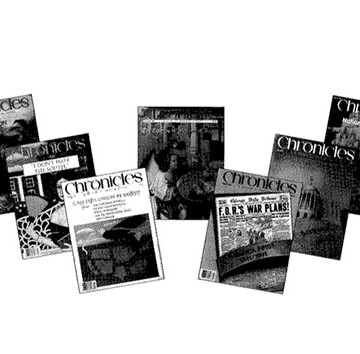I entirely agree with the spirit of this roundtable but not with the language of restoring “the Republic.” The United States is not now and has never been a republic. It is a federation of states, each of which, in Article IV of the Constitution, is guaranteed a republican form of government. But a federation of...
Category: Round Table Discussion
Adams’ Federalism
In 1786, John Adams wrote in his diary that a friend, “lamenting the differences of character between Virginia and New England,” welcomed from Adams a recipe for a Chesapeake makeover: “I recommended to him town meetings, training days, town schools, and ministers”; these “are the scenes where New England men were formed.” Because Adams started...
The United States, In Congress Assembled
“All legislative Powers herein granted shall be vested in a Congress of the United States . . . ” Thus run the first words of Article I, Section 1, of the U.S. Constitution, clearly laying out the Framers’ understanding of the nature and the role of Congress. Everything else enumerated in Article I—the various powers...
Reviewing Judicial Review: A Government of Justices
In the most famous defense of the U.S. Supreme Court’s power to declare acts of the federal and state legislatures unconstitutional, Alexander Hamilton argued that it was the Court’s job only to implement the will of the people as expressed in the Constitution. If the Court went beyond that—interpreting the document to include things that...
A Limited Presidency: From Cincinnatus to Caesar
The American president began as Cincinnatus, a patriot called to the temporary service of his country (a republican confederation). The president ends as Caesar, a despot of almost unlimited power, presiding over a global empire. Like the Caesars, in some quarters the president is even worshiped as a god. Cincinnatus was called because of his...
A Share in the Patria: What a Republic Is Good For
God likes farmers. Not gigantic corporate agribusiness, but farmers. He made man from the dirt and for the dirt, to cultivate His Garden. Adam means “of the red” or “of the soil.” When the children of Israel clamored for a king, so that they might rely on him to protect them from foreign invaders, the...
The Classless Republic: An Impossible Society
I cannot see the least possibility of recreating either an elite republican class (if, by “elite,” one means an untitled aristocracy) or the American Republic itself. The notion of a republic is a product of classical political thinking, which is now virtually dead in the Western world, and never appeared elsewhere. Not only has the classical...
Just One More Thing
Alexander Hamilton said debt is a blessing: It oils the wheels of business and enhances national power. Jefferson said debt is a curse: It binds future generations without their consent, striking at the very heart of the Republic—the consent of the governed. Bloomberg News reports (February 9) that the so-called financial crisis has added $9.7...
Russian Patriot: Solzhenitsyn’s Preoccupation With History
Chronicles has asked me “to participate in a roundtable on the contributions and legacy of Aleksandr Solzhenitsyn.” His contributions were of enormous importance. His legacy, perhaps less so. Here was a solitary man whose mind was illuminated by a sense of compelling duty: to write a truth, to cut a single clearing in a monstrous...
The Journeys of Aleksandr Solzhenitsyn
Shukov felt pleased with life as he went to sleep . . . The end of an unclouded day. Almost a happy one. [from One Day in the Life of Ivan Denisovich] The journey is over. Aleksandr Isayevich Solzhenitsyn survived war, the Gulag, and cancer; was exiled from his homeland, only to return, having outlived...
Witness to the Truth: Through Every Human Heart
Aleksandr Solzhenitsyn did not share the fate of some 2,000 writers, established or aspiring, who perished during Stalin’s reign of terror. Solzhenitsyn lived, against all odds, because he was chosen by God to share his people’s Calvary, to stand as its witness, and to provide a rare source of light in the cultural and moral...
The Genuine Article
Some of the happiest memories of my collegiate days are fervent barroom debates among a small but redoubtable and congenial company of reactionaries. The smell of spilled beer and sawdust still reminds me of those times. Outside, the 60’s raged. Hairy “students” with girlish arms and shoulders and trust funds preached revolution and the merits...
Paleos in Context
The significance of Chilton Williamson’s new book, The Conservative Bookshelf, is that it is the first general account of the conservative tradition to place what is now called paleoconservatism in the context of that tradition. Once upon a time, the connection would have been obvious because all conservatives were paleoconservatives, or close to it. Today,...
What’s Right With the World
The Conservative Bookshelf has so much going for it that I am hard pressed to nominate its best quality, though I aim to do so. Let me indicate something about the salient qualities of Chilton Williamson, Jr.’s latest production, before I identify what I see as his trump card. In the first place, these 50...
Cataloguing What’s Been Lost
Chilton Williamson’s study of the sources of American conservative thought presupposes certain assumptions about his subject that may not be universally shared but are defensible nonetheless. Williamson suggests that American conservatism is essentially paleoconservative, and both his choice of current conservative authors and his comments on Joe Scotchie’s Revolt From the Heartland underline this association. ...
The Remnant’s Library
Chilton Williamson has taken an important step toward giving postmodern conservatism a set of respectable literary credentials. If readers are expecting a conventional walk through the conservative “classics” or a set of reflections on the writers celebrated by Russell Kirk in The Conservative Mind, they will be disappointed. Rather than taking tea with Dr. Johnson...
We Are All Immigrants Now
Poll after poll shows that the vast majority of Americans want stricter controls on immigration. Yet it should be clear that our ruling class is not going to impose stricter controls or even enforce its own laws. What does this mean? The first thing to note is that immigrants, as such, are not the problem....
“This Land Is My Land”
The pressures that swelling populations exert against natural resources often increase economic inequality. Fortunately, unequally distributed wealth and power can result in forms of ownership that achieve environmental protection—for example, the arrangements of Colombian ranchers in the province of Cordoba. As Juan Forero writes in the New York Times (August 6): “A few years ago,...
Shoot the Losers
The novelist F. Reid Buckley once told a story about a Mexican woman who worked for his family as a maid or nanny during the 1930’s. The woman knew that Buckley’s father, William F. Buckley, Sr., was a strong opponent of Franklin D. Roosevelt in the 1932 presidential campaign. When she learned that Roosevelt had...
A New Christian America
Have you made any special place for Quincentennial Day? It promises to be a huge even, conceivably even more spectacular than the overblown Y2K phenomenon a couple of years back. I am referring, of course, to December 12, 2031. This is the feast day of Our Lady of Guadalupe, Mexico’s patron saint, in the year...
“We Hold These Truths”
Is the Declaration of Independence part of the federal Constitution? The short answer, of course, is “no.” For the Declaration to be part of the Constitution, it would have to have been included in the original document ratified by at least nine of the conventions held in the original 13 states between 1787 and 1789,...
“All Men Are Created Equal”
“When in the course of human events, it becomes necessary for one people to dissolve the political bands which have connected them with another . . .” The necessity has occurred. The 13 colonies have a long history as self-governing societies, a condition that is now threatened. As all governments derive their just powers from...
“Dedicated to the Proposition”
A gay activist recently claimed on national television that legal rejection of gay “marriages” violates the Declaration of Independence, while an ACLU member insisted that posting the Ten Commandments in a courtroom was a violation not only of the Bill of Rights but of the Declaration. Though absurd, these positions logically follow from the dominant...
Modern Elections and Heads of Households
What makes voting for your ruler a legitimate practice? Jean-Jacques Gore prattled nonstop throughout November about the need for “every vote to count” because then, and only then, would the “will of the people” be expressed. And Republicans offered no real counterargument, other than the sage comment of (President?) Bush: “We’ve counted the votes; now...
True Reform
The Electoral College is an archaic institution designed by men who felt that they could not trust the people at large to choose the president—or so we are told every four years by the most ignorant members of the Fourth Estate. While it may have been true (the argument continues) that the people were relatively...
Consider the Alternative
Wessex and Aquitaine, Arizona and Pennsylvania. All were, once upon a time, regions that had a distinct political identity, genuine states in which one could be a citizen or a subject. The first two survive only in the would-be romantic kitsch peddled by tourist boards; the others still survive as real states, but not for...
Don’t Fix It Restoring
The Electoral College, as we used to learn and as readers of this journal will still be aware, was supposed to be a device for removing the choice of the president from the people. Rather than direct elections, which could lead to the nation’s chief executive being the best demagogue, we were supposed to have...
Roll Over, James Madison
To anyone who has spent some time with the Framers and ratifiers of the U.S. Constitution, most current talk about that document seems not about the Constitution at all but about some fanciful construct of wishful thinking, accumulated misunderstandings, and successful usurpations. This is certainly so in regard to the recent discussions of the Electoral...
Let the Counterrevolution Begin
Two centuries after de Maistre, we still encounter Frenchmen, Italians, and Russians; as for “man,” we have yet come across him anywhere. Nations still survive, in spite of the attempts of dictatorial “Western” ruling elites to destroy them, and families, and all other communities bonded by kinship, language, faith, and myth. Those elites are united...
Jacobins—and Jacobins
At the dawn of the 21st century, few of today’s public (or private) school students would argue with you if you told them that the United States of America was founded upon the principle, proclaimed in the Declaration of Independence, that “all men are created equal.” They would offer no argument, perhaps, except that they...
What Is Paleoconservatism?
Paleoconservatism is the expression of rootedness: a sense of place and of history, a sense of self derived from forebears, kin, and culture—an identity that is both collective and personal. This identity is missing from the psychological and emotional makeup of leftists of every stripe—including “neoconservatives”—and is now disavowed by mainline conservatives of the Republican...
Law, Morality, and Religion
A paleoconservative thinks about the law the way Edmund Burke did. The basis of all law is the will of God or, to use the term employed by Blackstone (another hero of paleoconservatives), “natural law.” According to natural law as understood by Blackstone, Burke, and our late 18th-century American Founding Fathers (as paleoconservatives can still...
The Litmus Test for American Conservatism
Abraham Lincoln is thought of by many as not only the greatest American statesman but as a great conservative. He was neither. Understanding this is a necessary condition for any genuinely American conservatism. When Lincoln took office, the American polity was regarded as a compact between sovereign states which had created a central government as...
Mr. Wilson’s Wars
“National aspirations must be respected; peoples may now be dominated and governed only by their own consent. ‘Self-determination’ is not a mere phrase. It is an imperative principle of action, which statesmen will henceforth ignore at their peril.” Woodrow Wilson’s words, recorded in the New York Times on February 12,1918, defined the 20th century and...
Christianity and the Legitimacy of Government
The late Paul J. Tillich (1886-1965)—not exactly a hero to conservative Christians, Protestant or Catholic—spoke of the rival impulses that cause agony in personal and community decisionmaking, which he defined as the clash between autonomy and heteronomy. In autonomy—literally, “self-law”—individuals think of themselves as a law unto themselves; in heteronomy, “other-law,” they see themselves as...
Paleoconservatism and Race
Several years ago, while still at the Washington Times, I published a column on the occasion of the appearance of The Bell Curve in which I wrote, What you think the state ought to do about race has little to do with what you think about race. It has everything to do with what you...
The Old Testament Foundations of Cultural Conservatism
The Hebrew Scriptures of ancient Israel (a.k.a. the Old Testament) are frequently quarried for proof-texts—pretexts, really—for leftist politics. In prophetic calls for justice, liberal Christianity and liberal Judaism claim ample support to legitimize big-government intervention into every area of life, and “Justice, justice pursue” is broadly interpreted as a divine endorsement of the platform of...
Distrusting John Locke
John Locke has been interpreted in various ways that appeal I to conservatives—e.g., as a Christian, albeit a materialist and anti-Trinitarian, or as a qualified defender of private property— but there is a general drift to his thought that should offend traditionalists. His view of human beings as thinking matter without the capacity for innate...
A Bad Lie
The great evil of the modern age is the ability of modern states to destroy or suppress independent social authorities and to concentrate power to the center. The horrors of the 20th century—world wars, totalitarian revolutions, mass killings of millions by the state—could not have happened without a concentration of power unprecedented in history. The...
Emerging Majority?
It is reported that when British General Cornwallis surrendered to George Washington at Yorktown, thus effectively ending the War of Independence, his regimental band played a tune called “The World Turned Upside Down.” As we approach the end of the second Christian millennium, one begins to wonder if the band was not just a bit...
We Are Right on Foreign Affairs Because We Are Right on Everything
It is almost embarrassing to say that we are right on foreign affairs because we are right on everything else. It nevertheless has to be said, because it is true. We are right on foreign affairs because the behavior of our rulers abroad is a logical and inevitable extension of their behavior at home. Having...
The Heartland Is Real
America is an Idea and the First Universal Nation. So say the bedizened oracles and prancing shamans of the American Empire—empire, for what is universal cannot be a nation. But people don’t live on an idea. They live on land—lush or dry, rocky or fertile, according to their fates. If they are lucky, it is...
Without Unction
If Chronicles: A Magazine of American Culture is best known for its political, social, and historical reflections, that by no means implies any neglect of literature, nor does it imply that the distinction of Chronicles has not been felt in its treatment of literature, or indeed in its presentation of literature itself. I think that...
Our Constitution and Theirs
We here at Chronicles are Constitutional Fundamentalists. We swear allegiance to the Constitution of Hamilton, Madison, and Jay, and not the Constitution of Warren, Brennan, and Souter. We do not believe that the Constitution is a “living document” that must be altered by successive Supreme Court justices to keep pace with the times. The Constitution...
After the Flood
In the nearly 11 years since Chronicles took up the issue of virtually uncontrolled immigration to the United States, a great deal of political and social ground—much of it unrecoverable—has been lost. Immigrationists don’t claim to have won the debate on immigration reform, because they haven’t. Aside from writing op-ed pieces, nasty and dishonest reviews...
Virtual Education
Having observed and worked for over 30 years in what is euphemistically called American higher education, it seems to me that what is worst about it is not what it teaches but how it misrepresents itself. Contrary to the impression created by neoconservatives and some misguided traditional humanists, educators (at least the ones I have...
Blame America First
“America First,” he said, whereupon the skies opened, the thunder cracked, the rains came . . . who knew the empire was so sensitive? The corporate-media response to Patrick J. Buchanan’s A Republic, Not an Empire—and when is the last time a presidential candidate wrote his own campaign book?—rivals the Two-Minute Hates directed at Goldstein...
The American (Not Christian) Century
In the late 1980’s, I predicted that by the end of the century, which is also the end of the millennium, “The Soviet Union, or perhaps by that time, Russia, would be Christian, and the United States would be pagan.” The first, hesitant part of that prophecy, Russia, has already been fulfilled. And while Russia...
New People, New Century
During the 19th century, the United States fought five wars, of which it won three, the Indian, the Mexican, and the Spanish-American ones; the War of 1812 was a draw; and then there was the Civil War, the bloodiest war of mankind until that time and the one that proved the grand failure of the...
Just You Wite, Maddy Hallbright, Just You Wite!
For Washington architects attempting the construction of a brave new unipolar world, the end of Henry Luce’s American Century is not even faintly clouded by the suspicion that America (meaning what was reorganized in 1789 as the United States) has virtually ceased to exist, after a mere 200 years. And if America isn’t America anymore,...
